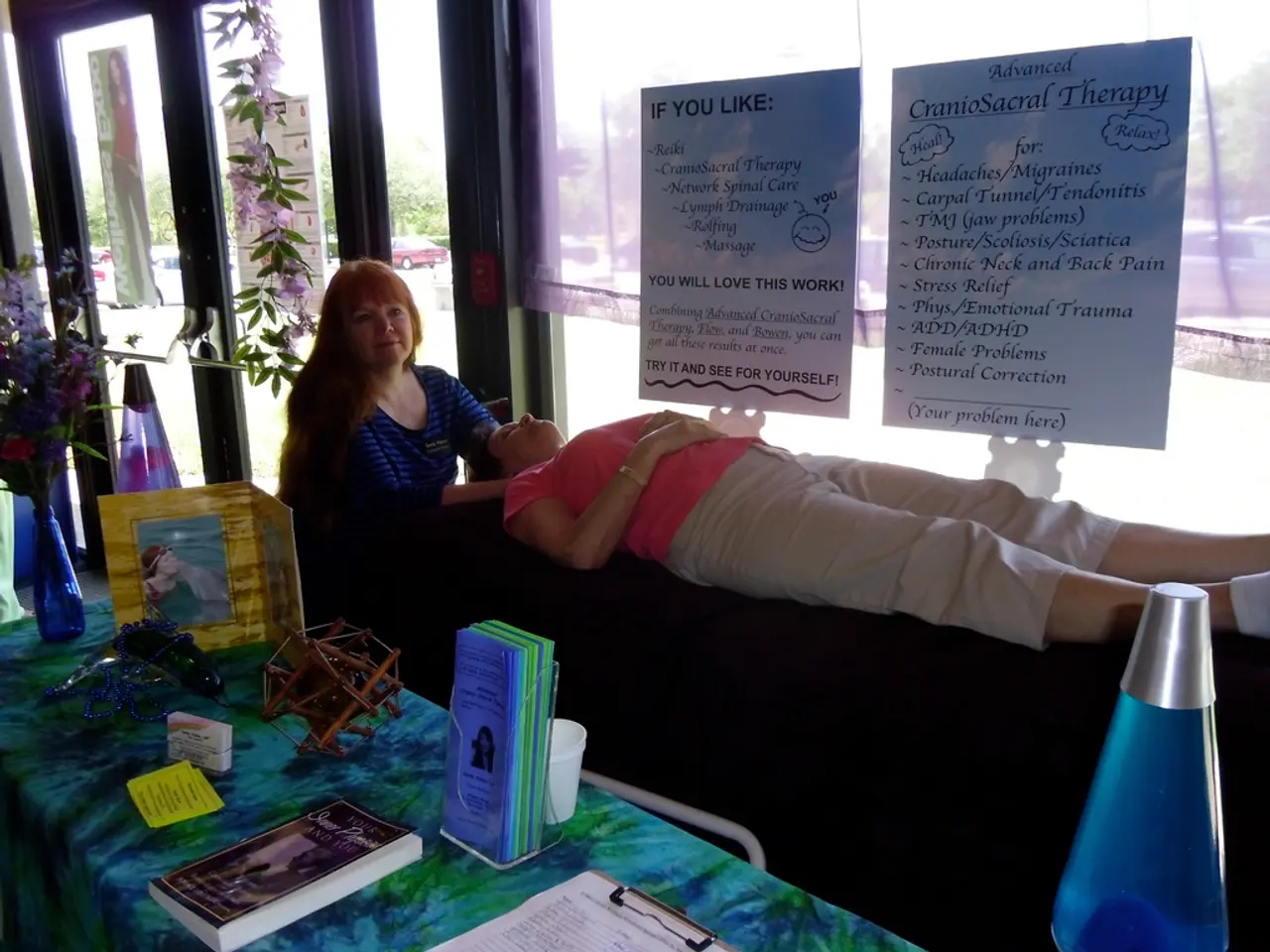Encouraging Open Dialogue: Strategies for Advocating for Mental Health Understanding
================================================================
In today's world, it's essential to prioritize mental health care just as we prioritize physical health. Practicing self-care openly and engaging in open conversations about mental health can help break down the stigma surrounding mental health issues.
By initiating frequent, stigma-free conversations about mental health in our circles, we can make it a routine topic and foster safe environments for emotional expression. Education is key to understanding mental health, and by educating ourselves through reputable sources, we can reduce stigma and promote understanding.
Challenging harmful stereotypes and language helps to reshape how people perceive mental health. We can speak out against myths and misinformation, emphasizing that mental health issues are common and treatable conditions.
Supporting mental health initiatives such as awareness campaigns, school programs, and community-based services can improve mental health care access. These initiatives, especially those that are culturally competent, address diverse populations' needs effectively.
Normalizing mental health care as part of daily life involves openly discussing our own self-care practices and encouraging others to seek help without judgment. This openness can model healthy behaviors and reinforce that seeking support is a sign of strength.
Practicing self-care openly, such as setting boundaries, using mindfulness techniques, or going to therapy, helps desensitize the taboo around mental health treatment and encourages others to do the same. By integrating these actions, we help build a culture where mental health care is accepted, prioritized, and accessible across social settings.
Acknowledging activities that support mental health, such as exercise, meditation, or setting work boundaries, helps normalize mental health care. Modeling self-care gives others permission to prioritize their well-being, potentially transforming communities and shifting cultural attitudes about mental health.
Pursuing recognized mental health qualifications can equip one to support others effectively. Whether you're a friend, family member, or professional, understanding mental health can make a significant difference in someone's life.
Mental health awareness is a daily commitment to understanding, compassion, and action. Raising awareness requires deliberate actions, education, and empathy. Every conversation, every corrected myth, and every act of kindness chips away at the barriers that silence people.
Continued effort is needed to break down stigmas and advance treatment for various health issues, such as HIV/AIDS. Stigma continues to be a barrier for veterans seeking mental health treatment, and addressing reintegration challenges affects the mental well-being of veterans.
By taking these steps, we can contribute to normalizing mental health care and creating a world where mental health care is accessible, accepted, and prioritized for everyone.
- Engaging in conversations about entertainment and mental health can help foster safe environments for emotional expression, encouraging open discussions and reducing stigma.
- By gaining knowledge about environment-related issues and science through reputable sources, we can better understand how our surroundings impact mental health and promote sustainable practices.
- Educational events focusing on health-and-wellness, mental-health, and therapies-and-treatments can provide valuable resources for individuals seeking to improve their mental well-being.
- Pursuing qualifications in community news journalism can help raise awareness about mental health issues, breaking down stigma and promoting understanding, while also addressing reintegration challenges faced by veterans.




